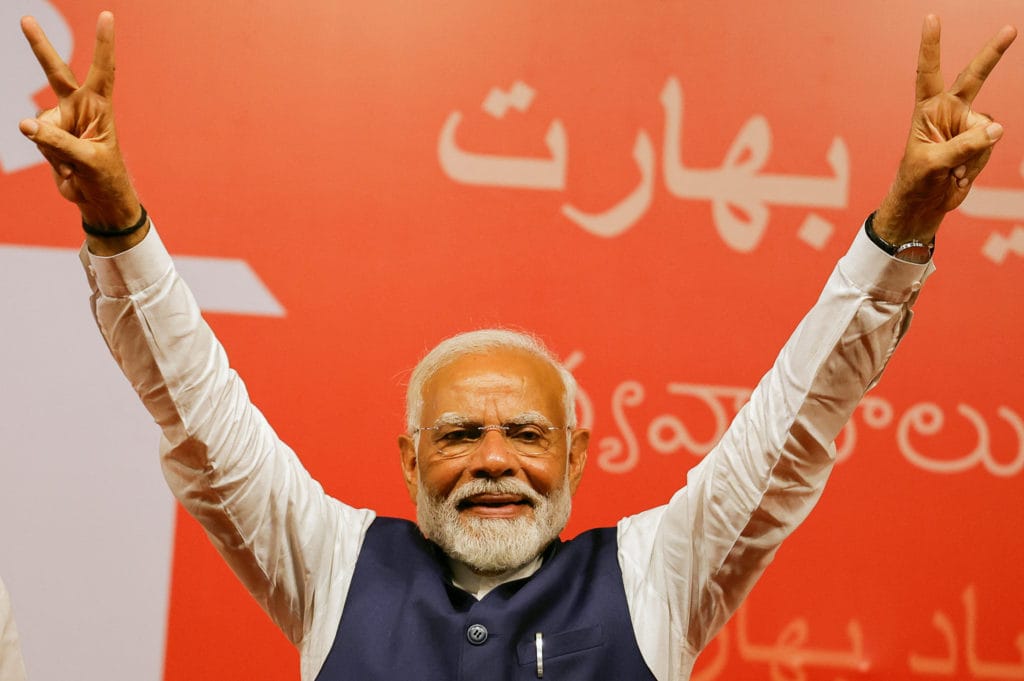Understanding the 2024 Indian General Election Results

What does it take to secure a third term in the world's largest democracy? The 2024 Indian general election, one of the world's largest democratic exercises, concluded earlier this month with Prime Minister Narendra Modi reelected to a historic third term.
Sadly, most Americans have a superficial understanding of India and Indian politics. Annoyingly, this has led to the tokenizing of a complex and diverse civilization, interpreted through a very narrow ‘caste, curry, and cows’ lens. A number of American experts hold parochial, one-sided views of India, and have until now, dominated the conversation about the country I was born in. All of that has started to change. I hope to be part of that change.
Below is my analysis of the important highlights of this significant election.
Key Highlights:
- Humbling results: The Bharatiya Janata Party (BJP), led by Prime Minister Narendra Modi, was unable to secure an outright majority but still won a majority in the Indian parliament thanks to its coalition, the NDA. The BJP’s 2014 and 2019 majorities were thanks to a wave of anti-incumbent sentiment against the Indian National Congress party, but this time that sentiment turned against the BJP in key areas. Still, Narendra Modi is only the second Indian prime minister to win a third term.
- Regional Shifts: The BJP lost ground in the Northern state of Uttar Pradesh which was considered a strong bastion for the party, frustrating its ambition for 400 seats in the parliament. Anger at agricultural policies, military recruitment policies, and fear that the BJP would change the constitution to disenfranchise minority voters was at play in UP. But anti-incumbent sentiment didn’t translate to a national wave. The BJP performed well in the states surrounding UP and in other parts of India, allowing it to remain in power at the center. While foreign media often highlight the North-South divide in India, the BJP made inroads in southern states where its brand of Hindu nationalism has been less welcome.
- Suffering from Success: In the last ten years in power, Modi has transformed India into an upwardly mobile nation that is now in the top 5 economies of the world. His focus on improving the lives of the extremely poor sections of Indian society has paid dividends in multiple elections. His Hindu nationalist agenda succeeded in addressing many grievances of the majority Hindu community. His aggressiveness in countering Pakistan and China were also popular across the country. Thanks to those wins, he took many political problems off the board for his voters, many of whom stayed at home, or voted on issues closer to home in 2024.
- Economic Challenges: Modi's government faces high youth unemployment and the need for job creation. Large parts of India’s poor population see government employment as an avenue to moving up into the middle class. Demand for those jobs outstrips supply, and the Modi government must continue to address economic mobility for the poor while forging ahead on broader infrastructure, agricultural and bureaucratic reforms to power what it calls a ‘double engine government’. India's potential as an economic superpower hinges on addressing these issues.
- Foreign Relations: Shortly after taking office for a third time, Modi flew to the G7 meeting in Italy as a guest. He also responded favorably to the Taiwanese government’s congratulatory tweet, which drew the ire of the Chinese. A Congressional delegation which included Former Speaker Nancy Pelosi visited the Tibetan Government in exile just a few days ago, which must have been approved by the Indian government. While India’s middle of the road stance on opposing Russia vis-a-vis the Ukraine conflict has frustrated the G7 countries, it’s obvious that Modi 3.0 is going to engage with the West and the world with rising confidence. As the western world stares at an increasingly fragile global world order, India’s inevitable climb towards superpower status should be welcome to those worried about Russia and China’s influence on geopolitics.
Thanks for reading Anang’s Substack! Subscribe for free to receive new posts and support my work.


Member discussion